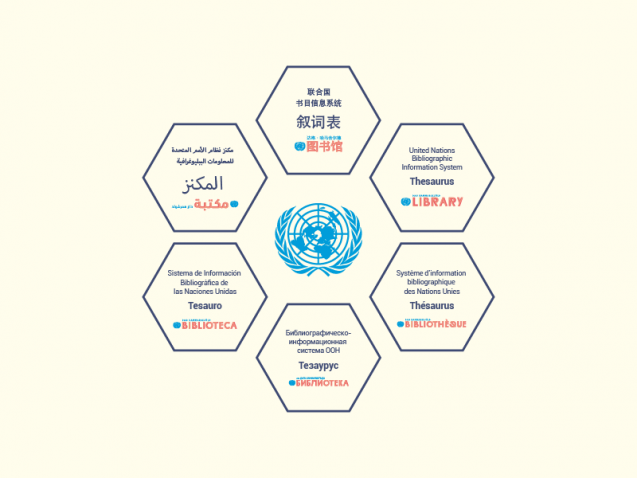How do search engines retrieve results, and how can we make the UN’s published output relevant for such searchers? Linked data is structured data interlinked with other data, making it more useful (and discoverable) through semantic queries. The Dag Hammarskjöld Library is pleased to announce the launch of their new linked data services platform: metadata.un.org.
The site currently hosts the Library’s UNBIS Thesaurus and the Department of Economic and Social Affairs’ taxonomy of Sustainable Development Goals identifiers.
The UNBIS Thesaurus is a database of controlled vocabulary used by UN programmes, funds and regional commissions to describe the UN’s published output (parliamentary documents, publications, reports etc.). The first online version of this resource was launched in 2001, and the new platform provides a revamped interface with increased functionality in the six official UN languages. The UNBIS Thesaurus grows and evolves as new topics are introduced to the agenda of the Organization. Controlled vocabulary makes subject searches possible by identifying materials on the same concept consistently, despite terminology changes over time.
DESA’s SDG Taxonomy was produced in collaboration with technical experts from across the UN system. They developed a system of Internationalized Resource Identifiers (IRIs) for the SDGs, the related targets and indicators, related entities linking to UNBIS Thesaurus terms, as well as the SDG Interface Ontology, maintained by UN Environment. These common identifiers are deployed to provide a key element of infrastructure that will allow UN system organizations and relevant stakeholders to map their SDG resources to the growing pool of knowledge about the SDGs available on the semantic web.
More linked data services and taxonomies will be hosted on metadata.un.org as they become available.
We welcome feedback on this new service.


